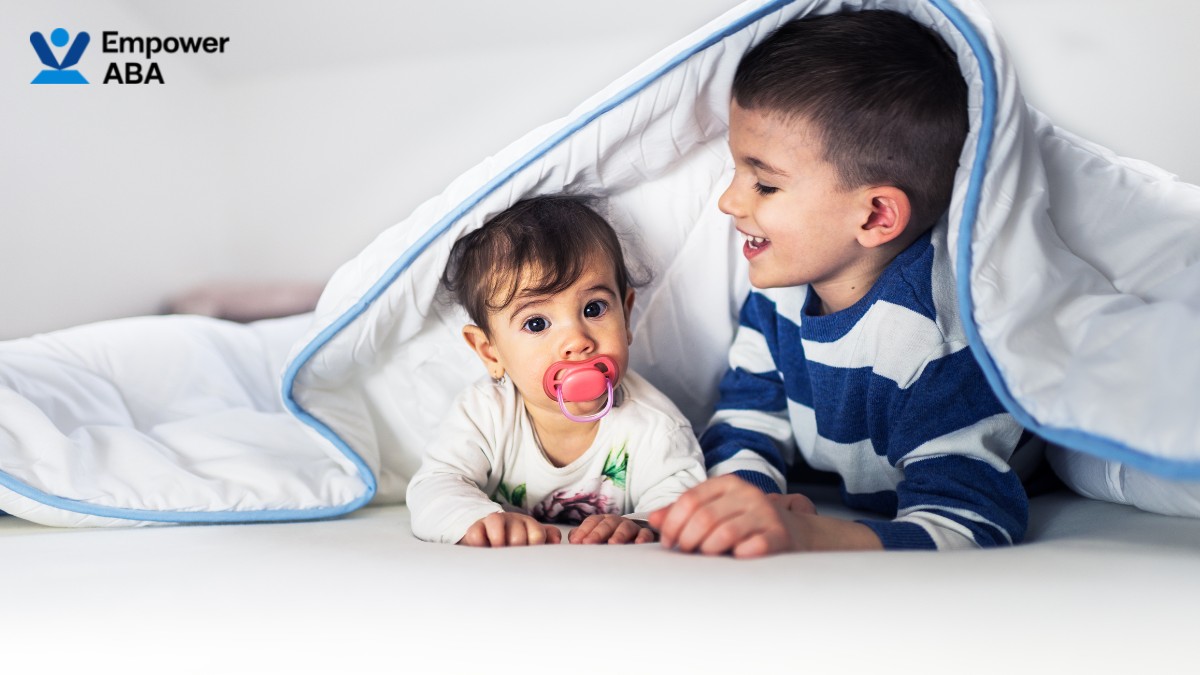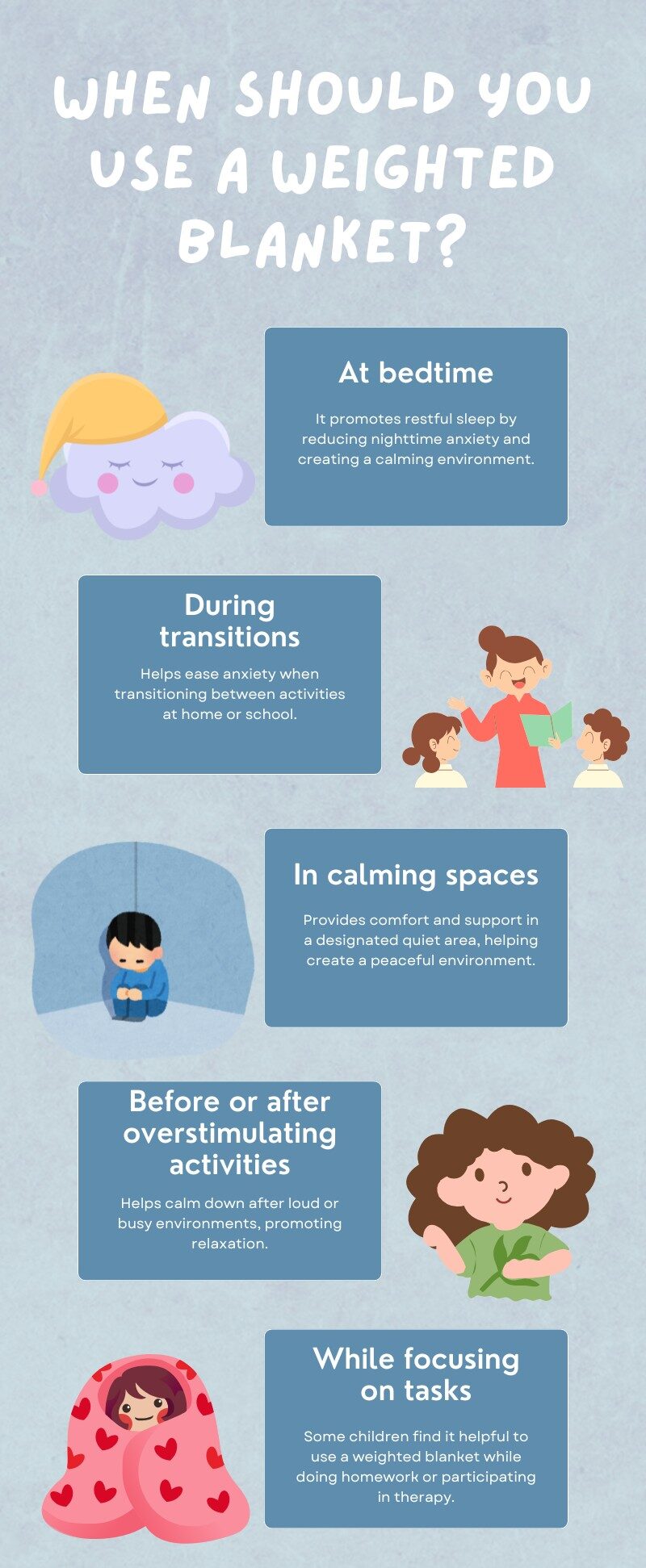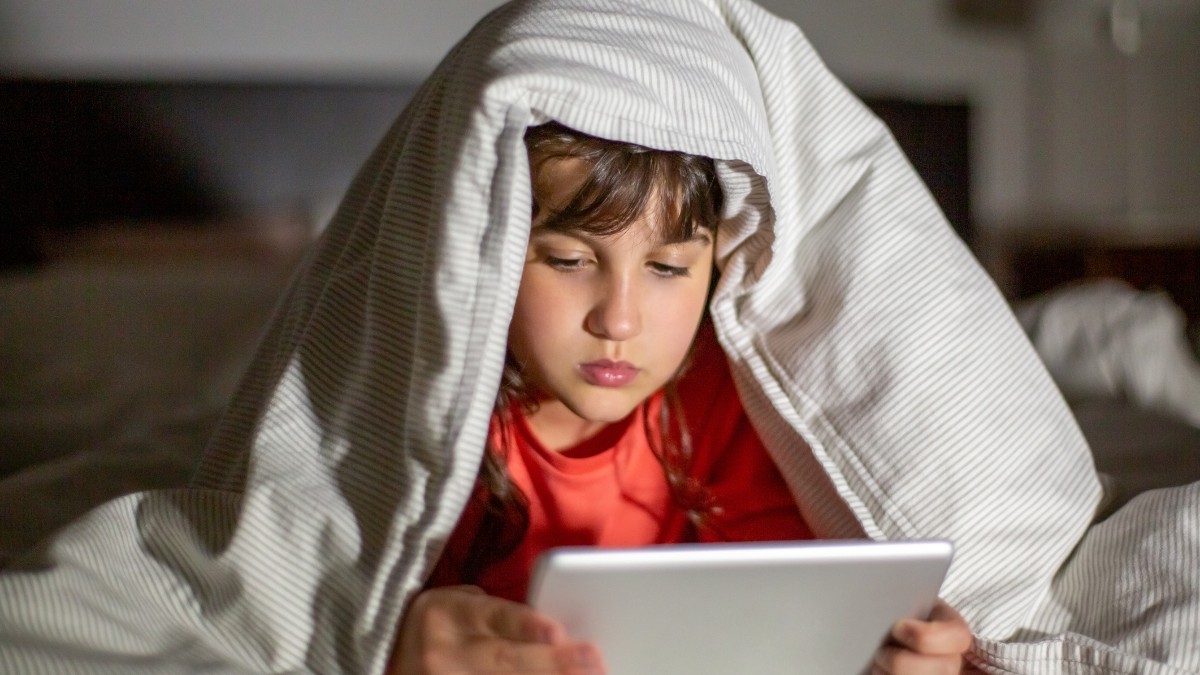Key Points:
- Weighted blankets can help individuals with autism by providing deep pressure stimulation, which promotes relaxation and reduces anxiety.
- They support better sleep, improved focus, and emotional regulation, making daily activities easier for children with autism.
- When combined with ABA therapy, weighted blankets can enhance overall progress by helping individuals self-regulate more effectively.
Getting a child with autism to sleep through the night or manage anxiety can feel like an uphill battle. Many parents of children with autism are turning to weighted blankets for their calming effects. These blankets mimic a comforting hug, but do they really help with autism-related challenges? Let’s break down the science and benefits.
Are Weighted Blankets Good for Autism?
Yes, weighted blankets can be highly beneficial for individuals with autism. They provide deep pressure stimulation, which helps regulate the nervous system, reduce anxiety, and improve sleep. However, the effectiveness of weighted blankets varies from person to person, so it’s important to find the right weight and material for each child’s needs.
How Weighted Blankets Help with Sensory Processing, Sleep Issues, and Anxiety
Children with autism often experience sensory sensitivities that make everyday environments overwhelming. Bright lights, loud sounds, and unexpected touches can cause stress and anxiety. Weighted blankets provide deep pressure stimulation (DPS), a therapeutic technique that applies gentle, even pressure across the body to promote relaxation. This pressure mimics a firm hug, helping children feel secure and grounded.
Sensory Processing Benefits
Many children with autism struggle with sensory processing, making it difficult to regulate their response to external stimuli. Weighted blankets help by calming the nervous system and reducing sensory overload. The deep pressure encourages the brain to release serotonin and dopamine, neurotransmitters that improve mood and relaxation.
Some children with autism have difficulty with proprioception, the body’s ability to sense its position in space. A weighted blanket provides physical feedback that enhances body awareness, helping children feel more in control of their movements. This can reduce restlessness and improve comfort during daily activities.
Sleep Improvement for Children with Autism
Sleep problems are common in children with autism, affecting their mood, focus, and overall well-being. Studies show that up to 80% of children on the spectrum experience sleep disturbances, including difficulty falling or staying asleep. Weighted blankets help improve sleep by increasing melatonin production, the hormone responsible for regulating the sleep cycle.
Children with autism often experience bedtime anxiety, making it harder to settle down at night. The gentle pressure of a weighted blanket provides a calming effect, helping children transition into sleep more easily. A relaxed nervous system leads to deeper sleep cycles, reducing nighttime awakenings and improving overall sleep quality.

Anxiety and Emotional Regulation
Emotional regulation can be challenging for children with autism, leading to meltdowns and heightened anxiety. Weighted blankets activate the parasympathetic nervous system, which helps shift the body from a state of stress to relaxation. This natural calming effect can reduce anxiety and improve emotional stability.
Many children use weighted blankets as a self-soothing tool, especially during overwhelming situations. The added weight helps regulate stress by lowering cortisol levels, the hormone associated with anxiety. By incorporating a weighted blanket into daily routines, children with autism can feel more secure and in control.
What to Consider When Choosing a Weighted Blanket for Autism?
Not all weighted blankets are the same, and selecting the right one is essential for comfort and effectiveness. Here are key factors to consider:
- Weight: A general rule is that the blanket should be about 10% of the child’s body weight.
- Material: Soft, breathable fabrics like cotton or minky fleece can be more comfortable for children with sensory sensitivities.
- Filling: Glass beads or plastic pellets are commonly used. Glass beads tend to be quieter and distribute weight more evenly.
- Size: A weighted blanket should cover the body without hanging off the bed, as this can cause uneven weight distribution.
- Ease of Cleaning: Look for machine-washable options, especially for younger children.
When Should You Use a Weighted Blanket?
Weighted blankets can be used in various settings to help children with autism self-regulate. Some effective times to use them include:

Are Weighted Blankets Safe for All Children with Autism?
Weighted blankets are generally safe when used correctly, but there are some precautions to keep in mind:
- Always supervise younger children. Children under the age of 2 should not use weighted blankets due to the risk of suffocation.
- Ensure the blanket isn’t too heavy. It should be manageable for the child to remove independently.
- Avoid covering the face or neck. Weighted blankets should always rest on the body, not the head or face.
- Check for signs of discomfort. If a child appears uneasy or struggles with the weight, consider a lighter option.
How Weighted Blankets and ABA Therapy Work Together
While weighted blankets can be helpful for managing sensory challenges, sleep issues, and anxiety, they work best when combined with a structured therapy approach like Applied Behavior Analysis (ABA) therapy. ABA therapy focuses on teaching children with autism new skills, improving communication, and reducing challenging behaviors. A weighted blanket can be used as a reinforcement tool to help a child self-regulate during therapy sessions or at home.
Get ABA Therapy Support in Virginia, New Jersey, and New York
If your child has autism and struggles with emotional regulation, sleep, or sensory sensitivities, ABA therapy can provide structured support to improve their daily life. At Empower ABA, we specialize in helping children with autism develop essential life skills, improve communication, and navigate challenges with confidence.
Our team is here to support your child’s progress. Contact us today to learn more about how ABA therapy in Virginia, New Jersey, or New York can help your child thrive.

